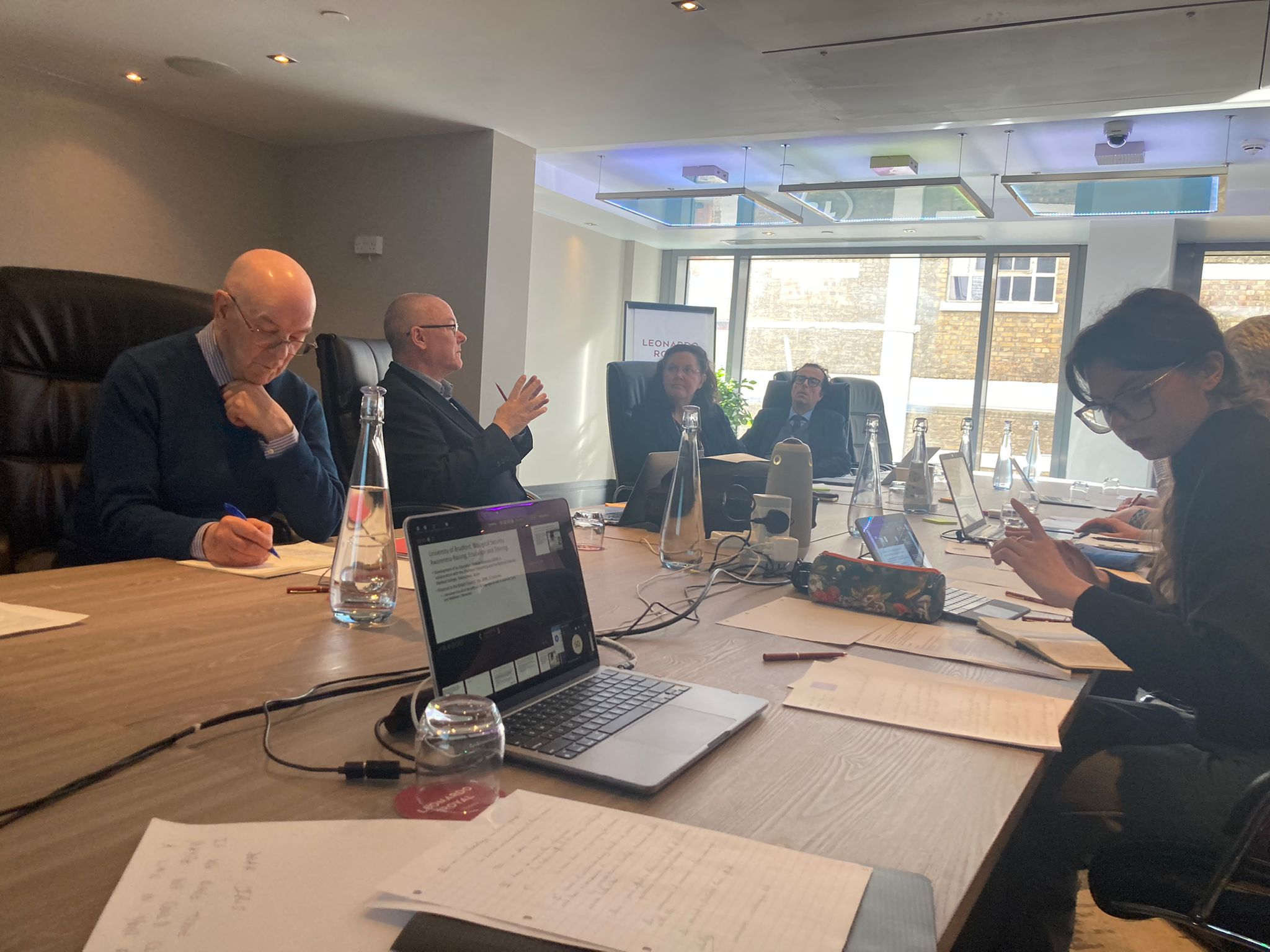London Metropolitan University’s Biological Security Research Centre hosted high-profile workshop
On 16 March 2024, the London Metropolitan University’s Biological Security Research Centre (BSRC) hosted a high-profile workshop titled 'Toward a collaborative, collective and integrative international CBRN security education: Coordination of International Policy Initiatives on Biosecurity Education’. Delegates included national and international experts from academic institutions, civil society and international organisations.
Professor Lijun Shang, founding director of the BSRC chaired the event. The workshop emphasised the importance of coordinating efforts and integrating holistic initiatives in a timely manner regarding biosecurity education. It also aimed to deliberate on means of implementing the International Biological Security Education Network (IBSEN) in preparation of the BWC 2024 Meeting of States Parties. Professor Shang opened the workshop by presenting the role of the BSRC as an education hub covering multidisciplinary efforts to biosecurity education.
Professor Malcolm Dando from Bradford University and member of the BSRC approached biosecurity education from a cross-temporal perspective, highlighting the endeavours undertaken until now, such as the book Essentials of Biological Security (Wiley, 2024) as well as the soon to be launched IBSEN project. Dr Simon Whitby from Bradford University shared the role that a combined Team-Based-Learning and Threshold Concepts methodology might play in global biosecurity education.
Focusing on the efforts of international organisations, a former Chair of the International Nuclear Security Education Network (INSEN) and Assistant Professor at the University of Siena, Dr Matteo Gerlini shared the development and structure of the INSEN.
Discussion points
Luisa Sánchez-Bravo, Senior Policy Officer at the Office of Strategy and Policy and Secretary to the Advisory Board on Education and Outreach, Organisation for the Prohibition of Chemical Weapons (OPCW) followed by emphasising the activities of the ABEO and its role in raising awareness of the OPCW and its mission and foster responsible use of chemistry.
Oscar Meless, Political Affairs Officer at the Biological Weapons Convention Implementation Support Unit (BWC ISU) introduced the tools used by the ISU to promote the BWC. Finally, Sarah Ruth Opatowski presented an overview of the United Nations Institute for Disarmament Research’s (UNIDIR) current work on biosecurity education and related activities, including the development of a BWC National Implementation Measures database.
The workshop then moved to the regional correspondents and their analyses of the opportunities and challenges of implementing biosecurity locally. Dr Zabta K Shinwari, Vice Chancellor of the Federal Urdu University of Arts, Science and Technologym(FUUAST), introduced his approach to strengthen the International Education Network and presented the challenges Pakistan faces in terms of biosecurity. Dr Maria Espona, director of Argentina Information Quality (ArgIQ), provided an analysis of the challenges of implementing biosecurity education in Latin America.
Professor Brian Balmer from the Department of Science and Technology Studies at University College London (UCL) and IBSEN board member presented on how understanding the history of biological weapons (BW) is important in any biosecurity education initiative and how history contributes to contemporary BW security challenges. Richard Guthrie co-ordinating editor of CBW Events then brought some of the threads of the discussions together through identification of synergies and gaps across various mandates.
A discussion was then held focusing on which framework would solidify the IBSEN. An overview of a brief report of the meeting was outlined by Iris Magne from the BSRC. The policy workshop ended with a conclusion provided by Professor Malcolm Dando. All participants agreed that this type of dedicated workshop is vital to strengthening global and regional chem and biosecurity education.
More information
The workshop was funded through a grant awarded by Professor Lijun Shang by Research England, Policy Support Fund (PSF) and the Joseph Rowntree Charitable Trust (JRCT).
London Met’s Research and Postgraduate Office also supported this workshop, and its associated director Maeva Khachfe met some attendants and had positive discussions around how to best support this project. For any direct enquiries, please contact Professor Lijun Shang: l.shang@londonmet.ac.uk.
Resources are located on the IBSEN’s website and are accessible here.

Workshop led by Dr Lijun Shang, professor at London Met
